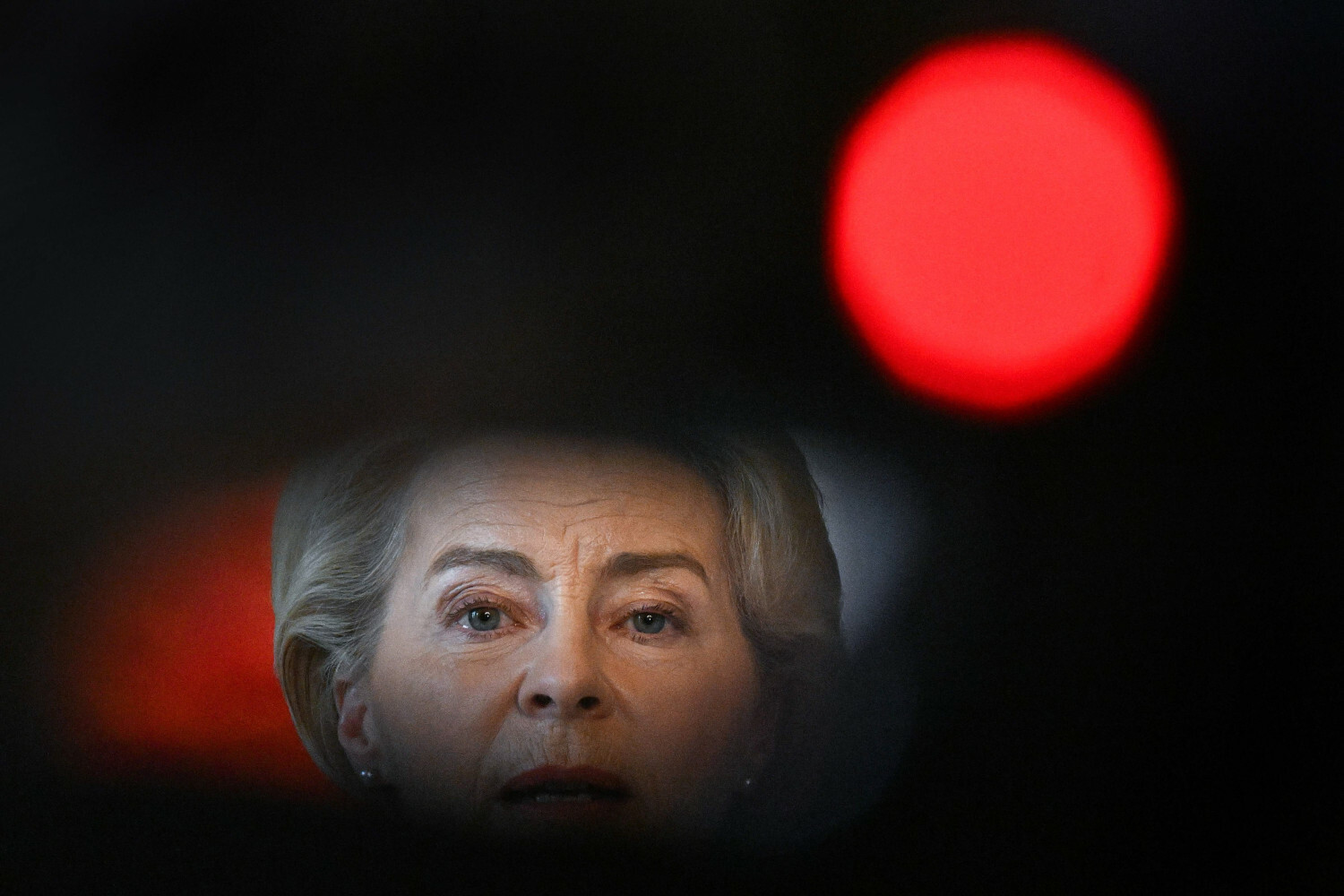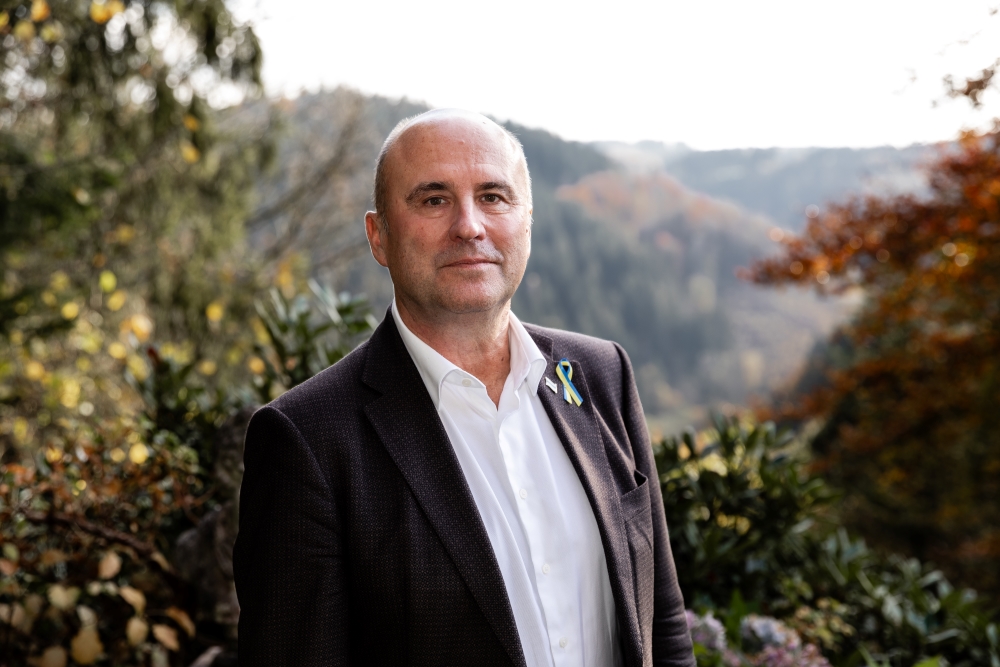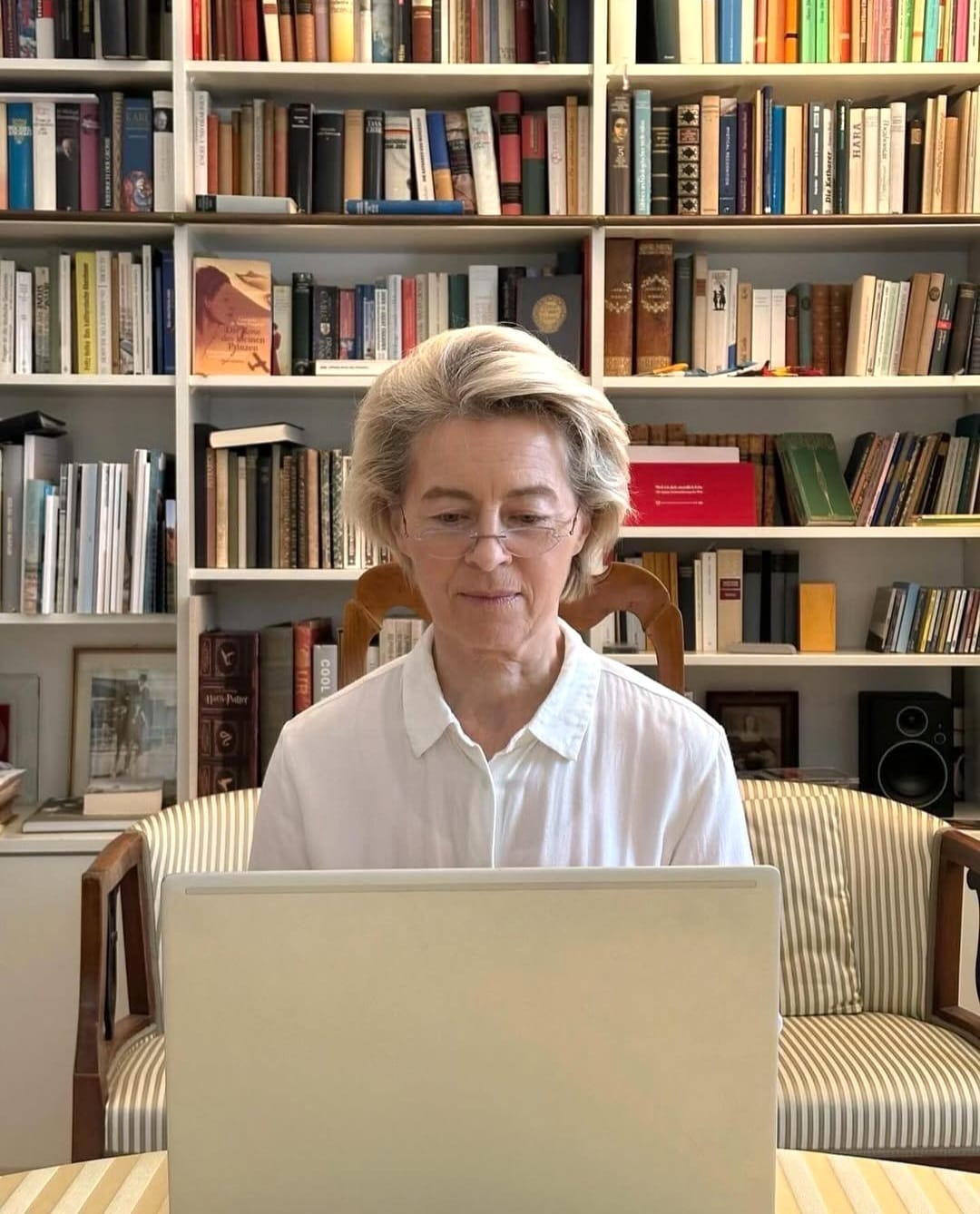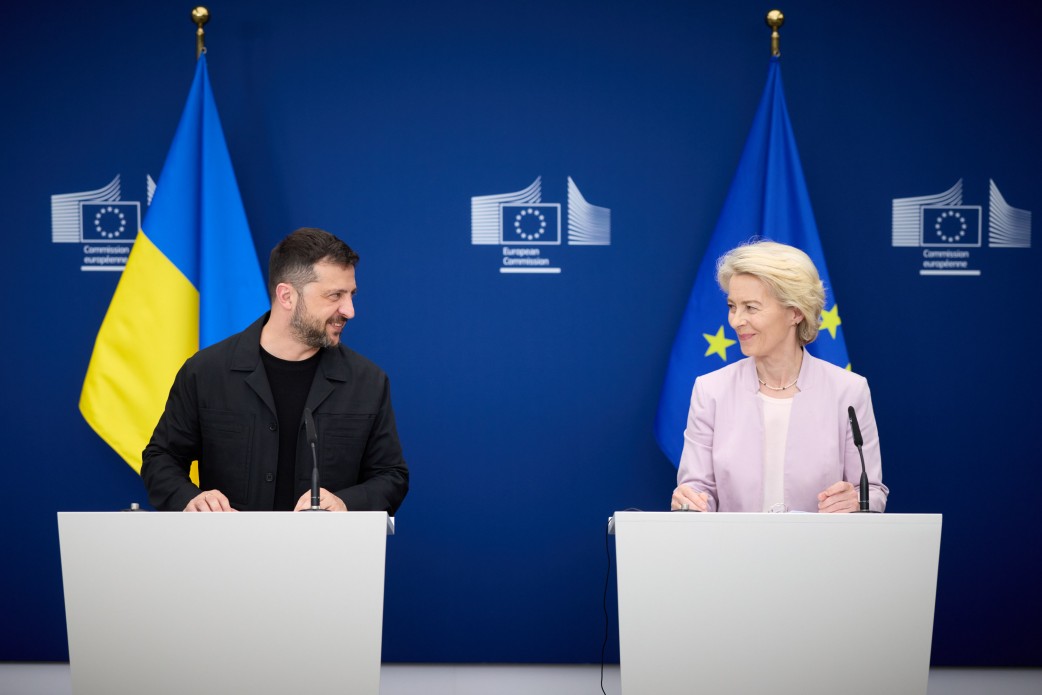Support Sestry
Even a small contribution to real journalism helps strengthen democracy. Join us, and together we will tell the world the inspiring stories of people fighting for freedom!
Why do you and your organization show such interest in supporting and even developing Ukraine’s economy? I understand that your foundation supports the charitable organization "Economists for Ukraine," which unites experts from various countries to assist Ukraine in this area.
It is crucial to remember that war is an economic action. What does that mean? You have resources that need to be efficiently allocated to outmaneuver the enemy. Whoever uses their resources most effectively will prevail. A strong economy is essential for waging a prolonged war. People must remain productive, production capacity must be high, and society must function.
That’s why we look for ways to grow Ukraine's economy even during the war and maintain employment levels. One way to achieve this is by creating ecosystems where people can identify problems that need solving and work on them without significant capital or infrastructure investments. We provide laboratories, equipment, academic expertise, scientific experts, venture capital, and funding.
Ukraine's economy relies on external aid, but its defense is funded directly from its own budget. Thus, when the economy grows, more funds become available for the front lines. Conversely, if the economy weakens, so does the front
It’s a straightforward and direct relationship. So, if the Ministry of Economy approaches us with questions like how to increase tax revenues by 2025 or reduce debt burdens, we help find solutions because we have a network of economists and actionable ideas.
We engage in extensive work in the economic field, including sanctions and policy development. Having the right processes in place in society is critical – not only introducing the right technologies but also building the proper institutions and structures for this work.
What sectors of Ukraine’s economy are you focusing your support on today?
I’ve been to Ukraine four times since the beginning of the full-scale invasion – twice this year, once last year, and once in 2022. I’ve observed how the situation has evolved, how needs and dynamics have shifted. Initially, it was mostly about internally displaced persons – people relocating from one city to another. The situation was uncertain, and we didn’t know what to expect next.
By 2023, the situation had significantly stabilized. We could better understand where people could live, how to live and work, and how to build their lives amidst the realities of war. By 2024, however, we see more serious geopolitical shocks: uncertainty in the United States, hesitation from some European allies, tensions between China and Taiwan, and North Korea's involvement – all adding to global instability while Ukraine keeps holding on.
This pushes us to support Ukraine in the areas of greatest need, which extend beyond the economy alone. Sestry.eu has already written about our collaboration with the National University of Kyiv-Mohyla Academy and the Kyiv School of Economics.

During my latest trip, I visited Kyiv, Sumy, Kharkiv, and Vinnytsia. I also went to Mykolaiv and Odesa, as we have teams in all these regions. I try to visit every few months to meet with the teams in person, so they know we’re not just sitting on the other side of the world but truly care and want to see how programs are working. What’s effective, what’s not, what needs to change, what we should consider, and whether new opportunities have arisen.
In Kyiv, we’re opening a hub dedicated to what we call recovery science. Recovery science encompasses all innovations necessary for winning the war and building a strong post-war country. This includes infrastructure, clean energy, demining, restoring hospitals, and institutional rebuilding. It can also cover defense, such as drones, surveillance, and other wartime needs.
The second part of my trip focused on new initiatives. One of these is our collaboration with the Sumy city council to develop sustainable internet infrastructure.
Due to air raids, power outages, and disruptions in education, people in Sumy are increasingly forced to take shelter. Unlike Kyiv, where few people leave their homes in the middle of the night, in Sumy, this remains a necessity. This makes life, work, and education much more difficult in the city. The internet has become one of the primary tools for maintaining communication, sharing information, and understanding what’s happening. However, Sumy has faced severe challenges in ensuring internet access during the war. We are working with Cisco to bring new radio equipment to the city, expand the number of Wi-Fi hotspots, and provide free internet access.
In Vinnytsia, we are focusing on agrotechnology, creating an agrotechnical hub. Technologies from international partners will be consolidated in one scientific space in a region already rich in agricultural expertise. Vinnytsia is an agricultural city, as it has always been a farming region. It boasts some of the world’s most fertile soils – chernozems. It’s logical to tackle Ukraine’s agricultural challenges in a place like Vinnytsia. The idea is to gather all the necessary resources in this city, engage the community, young scientists, businesses, and universities. Vinnytsia is home to six universities, remarkable for a city with a population of 300,000!
We are establishing scientific and development centers where people can come together, generate new ideas, create businesses, and access all the necessary structures to implement those ideas. Often, when building a business, it’s challenging to find the tools, workers, and capital required. We aim to simplify these processes so that people can experiment, quickly test ideas, and bring them to market.
We already have over 100 international technology partners who want to come to Vinnytsia to test their developments and share expertise. University partners are also interested in collaborating with Vinnytsia’s agricultural researchers. We hope to create a very vibrant and productive community.
When do you expect the first results of your activities?
We anticipate that by June 2025, several projects will have already been launched, and the hubs in Vinnytsia will be operational, working with test farms around the city. We’re already introducing three new technologies into Ukraine’s agricultural sector, one of which is particularly interesting.
About the algae that cleans soil after explosions?
Yes, this technology allows for the rapid restoration of soil contaminated by explosions. Explosions on agricultural lands cause several problems. First, high temperatures create scorched areas unsuitable for farming. Second, explosive substances contain toxic chemicals hazardous to humans, such as mercury, cadmium, or even radioactive materials. This can render such fields unfit for cultivating food crops for over 10 years.
Sometimes you see photos of people growing cabbage or beets in abandoned tanks or near them. This is extremely dangerous, as such vegetables can accumulate toxins, causing long-term harm to health
One of our partners involved in the Vinnytsia collaboration developed a technology for cultivating special algae. These algae, similar to marine varieties, grow rapidly in industrial tanks through fermentation, allowing for the production of large quantities.
This technology facilitates soil detoxification by breaking down heavy metals and toxins. Thanks to it, the land restoration process is reduced from decade to three years. After this, the soil becomes suitable for agricultural production.

Ukraine faces many challenges now. For instance, farmers’ fields still have active mines. There are also issues with logistics, safe grain storage, and other critical matters that need addressing.
Additionally, being a farmer in Ukraine is extremely challenging – it’s not a job where one can get rich quickly
Thus, it’s necessary to find balance and create solutions that help farmers, heal the agricultural system, and speed up recovery from soil contamination and the overall impact of war. The idea is to bring as many innovations and technologies as possible to agriculture.
In addition to the open projects in Kyiv and Vinnytsia, our ultimate goal is to establish similar centers in other regions, such as Zaporizhzhia, Mykolaiv, and Kharkiv. This is relatively easy to implement.
By the way, regarding Kharkiv. I wanted to ask you about the educational project you are implementing in this city. On your foundation’s page, I saw a call to support your initiative: only $35 – a safe learning opportunity for children in Kharkiv for one day.
Regarding Kharkiv, we are implementing a joint project with the Ministry of Education aimed at supporting schools and creating assistance centers for children. The idea is to modernize the education system, which in Ukraine has largely remained unchanged for a century. The war and the COVID-19 pandemic have further highlighted the need to adapt learning to contemporary challenges.
Many children are falling behind in their studies, especially in fundamental disciplines like reading, writing, and mathematics. The overall educational level has significantly decreased – by an average of two to three years compared to pre-war times. While there are many educational centers in Ukraine, most of them resemble childcare facilities. They offer a few hours of lessons, games, or English classes, which are helpful for the community. However, we aim to go further – to introduce new, effective approaches to education.
In collaboration with the Ministry of Education, we have opened educational centers in Kharkiv, Sumy, Okhtyrka, Mykolaiv, and Odesa. These centers serve as platforms for experimenting with modern teaching methods. We’ve engaged international specialists in early childhood development, psychologists, and other experts to create innovative approaches. For example, my son in the United States attended a preschool that used the Reggio Emilia approach – an Italian methodology that teaches children to solve problems through collaboration in groups without direct teacher involvement. This approach focuses on fostering teamwork and collective learning.
Additionally, we work with children who have disabilities or have experienced significant trauma.
Some children haven’t spoken a word for six months after losing a parent on the front lines
Yet, after a few months of working with psychologists and other specialists, they begin to open up and talk again. Gradually, we involve them in group activities with other children, helping them share experiences and participate in learning. This is also an important lesson for other children: understanding that every member of society is unique and equally valuable, regardless of their life circumstances.
Our centers deviate from the traditional model where children simply sit at desks and listen to a teacher lecture for an hour – we strive to create an environment that fosters active learning and development.
Furthermore, we are developing educational materials for the Ministry of Education to make new approaches accessible for teacher training nationwide. Everything proven effective in our centers is formalized into methodological recommendations, explaining the necessary resources and including training sessions. We are currently building partnerships with pedagogical universities so that their students can join the work in the centers, gaining practical experience and new knowledge.
Gradually, though it won’t happen immediately, these changes will reach every school because I strongly support the idea of public education. I want to create systems that work for everyone. It’s very easy to open a private school with a new methodology, where only a small number of children will have access. It’s great – it works well, with the best teachers, technology – everyone’s happy.
But real change will happen if we can transform the system on a national level, though this will be very slow. That’s why I don’t claim we can make a big impact immediately, but it’s important that we have a mechanism for change within the education system.
The scope of your projects is impressive – ranging from economic initiatives and demining efforts to soil remediation and new educational methods. You work with city councils, ministries, and commercial enterprises?
At present, we have established partnership agreements and memoranda of cooperation with almost all key ministries in Ukraine: the Ministry of Culture, the Ministry of Environmental Protection, the Ministry of Veterans Affairs, the Ministry of Economy, the Ministry of Education and Science, and the Ministry of Digital Transformation. Additionally, we have an agreement with the Mejlis of the Crimean Tatar People.
The Ukrainian government is unique in being easier to work with compared to many other countries' governments
Often, interacting with state institutions feels like talking to a grandparent – a slow and cumbersome process. But in Ukraine, there is a completely different approach: a lot of energy and readiness for change. This is driven by the need to survive. We have no choice but to look for new solutions, try new ideas, and implement them.

Although our organization is small, we strive to build as broad a network as possible with various ministries and individuals so they can reach out to us with requests or ideas where we can be useful. Our goal is to respond to needs and help address them. Large organizations handle global tasks – delivering hundreds of generators or millions of batteries, funding schools and universities. We cannot operate on such a scale – our approach is different.
We try to be the "glue" that binds new ideas and creates space for rapid testing. We assist without spending millions of dollars. Our value lies in bringing efforts together, promoting innovation, and finding effective solutions.
Do you plan to continue providing such extensive assistance to Ukraine until its victory?
Oh, I’m sure we will actively assist Ukraine for a long time after its victory. The issue is not only about military success. After the war ends, a tremendous amount of work will be needed to restore the country to full functionality, right? We’ll need to help Ukrainians who have gone abroad return. Estimates suggest that five to ten million people are currently outside Ukraine. I expect at least 10–30% of them to return – that's two to three million people who will need reintegration.
Additionally, infrastructure will need to be rebuilt. Preserving a strong democracy after the war will also be a crucial task. In such transitional periods, a lot can go wrong, so I believe our work in Ukraine will continue for a long time.
Personally, I am also involved in defense-related projects. I invest in and collaborate with companies developing military technologies. To be honest, I believe in only one end to this war: the complete military defeat of Russia. Without this and political changes in Russia, I see no real end to the war. At best, we will have a frozen conflict; more likely, an active hot phase where the roles of China, Iran, and North Korea will only grow.
Without Russia’s total defeat, it’s hard to imagine a happy ending for the world. Despite Trump’s statements, I don’t see how he can end the war by 2025, as he promises. Unfortunately, this will be a long fight. Many of Ukraine’s future resources have already been spent to defend the present.
I only hope we won’t sell that future for nothing by seeking a short-term resolution to the war. I believe Europe and the U.S. must seriously invest in Ukraine – providing proper protection for cities and creating opportunities for frontline advances. It will be interesting to see what happens in the next two to three months.


Journalist, editor. She has lived in Poland since 2015 and has worked for various Ukrainian publications: «Postup», «Livyi Bereg», «Profil» and «Realist.online». She is the author of publications on Ukrainian-Polish cooperation, covering topics such as economic and border issues, cultural heritage and commemoration. She is also a co-organiser of journalistic initiatives promoting Ukrainian-Polish friendship. She has worked as a trainer for the EU programme «Women’s and Children’s Rights in Ukraine: Communication Component». Her interests include personal development and neurolinguistic programming, among others.

























